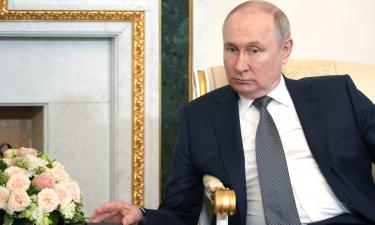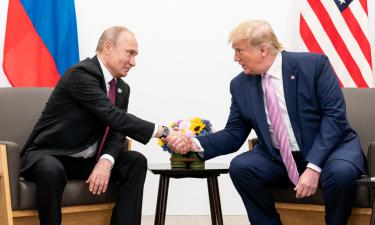US Places Security Council in a Dilemma
Should the United Nations Security Council fail to approve a second draft resolution on Iraq sponsored by the United States, Britain and Spain, it will face serious consequences. The US will unleash a war in Iraq no matter whether the Council will okay its resolution or not. By voting down the draft resolution and not backing the US the Council can deal a major blow on the UN, can ruin its legitimacy.
That is the central argument in the George Bush administration's pro-war rhetoric. The US president's national security adviser, Condoleezza Rice, voiced the thesis in more evasive words. Ms Rice said that the responsible UN Security Council members simply must back the US-sponsored resolution, which will enhance the Council's role in international affairs.
Washington makes it clear that the UN's influence on world politics is directly contingent on its co-operativeness with the US. This is what has been uttered in public many times. What is meant is still worse: by declining to march in cadence with the US, those heretics from the Council admit utter uselessness of that body, if not complete impotence of the entire Organisation.
America's exorbitant belief in its might has risen to a crescendo in that argument. The anti-war stances of Russia, France, Germany and China, the non-alignment movement's opposition to the war prospect, 10-million-strong peace marches all across the world. These do not seem to be enough to make Washington doubt.
Does not the US drive itself into isolation from the UN by trying to crush the Council.
Nicolas Sarkozy, French Interior Minster, has expressed the dominating sentiment saying that no superpower can handle international affairs on its own.
Iraq will face its judgement day on March 10, to all appearances. The US and Britain are pressing the Council to vote on the new resolution on Monday, March 3. To win those still uncertain over on its side, the anti-Iraqi coalition has drafted the resolution in milder terms. Iraq has failed to take the final opportunity to disarm provided by Resolution 1441 - that was the document's major idea.
It means possible military action against Iraq will be quite legal, will be based on Resolution 1441, which was adopted unanimously.
This time a unanimous vote at the Council is very unlikely. Russia, France and Germany have proposed a rival initiative, a memorandum, which is meant to counter the resolution backed by the US, Britain and Spain. The Russia-France-Germany memorandum urges further inspection effort, clear identification of weapons inspectors' tasks and deadlines. The Security Council is now a battlefield of antipodal viewpoints.
The US, nevertheless, hopes the Council will vote 9:2 in its favour and four members will abstain.
The US plans to act as follows: first it will try to persuade France not to put veto on the resolution but abstain. Russia and China could follow suit in that case. Bulgaria will certainly back the three sponsors of the new resolution. There is nothing the US can do about a stubborn Germany and Syria where Arab ultra nationalist sentiments are strong. The latter are sure to retain their strong anti-war positions. America expects Pakistan to vote either against or abstain. As to votes of the other 5 non-permanent Council members, they can easily be seduced into vote for the resolution either by promises of financial aid or by veiled threats.
They /US diplomats/ promise us no end of troubles if we fail to back the resolution, a representative of one of the latter five countries has confessed to The Washington Post. They make it clear in a veiled way that the US would regard the failure to vote "for" as an act unfriendly towards it.
Without seeking such an unrepresentative and, to a great extent, false majority at the Security Council, the US runs the risk of getting alienated from the rest of the global community.
The Washington Post, for one, points to an avalanche of telegrams the State Department receives from US embassies across the globe. Many people abroad are getting increasingly confident that President Bush poses a greater threat than Iraqi leader Saddam Hussein. That is the major concern of the US' embassies, according to the newspaper.
Here arises a question. Will the US' bellicosity towards Iraq prompt the world community to treat the UN as a leverage to deter the US from resolving global problems and even judging national leaders at its own discretion?
Subscribe to Pravda.Ru Telegram channel, Facebook, RSS!





